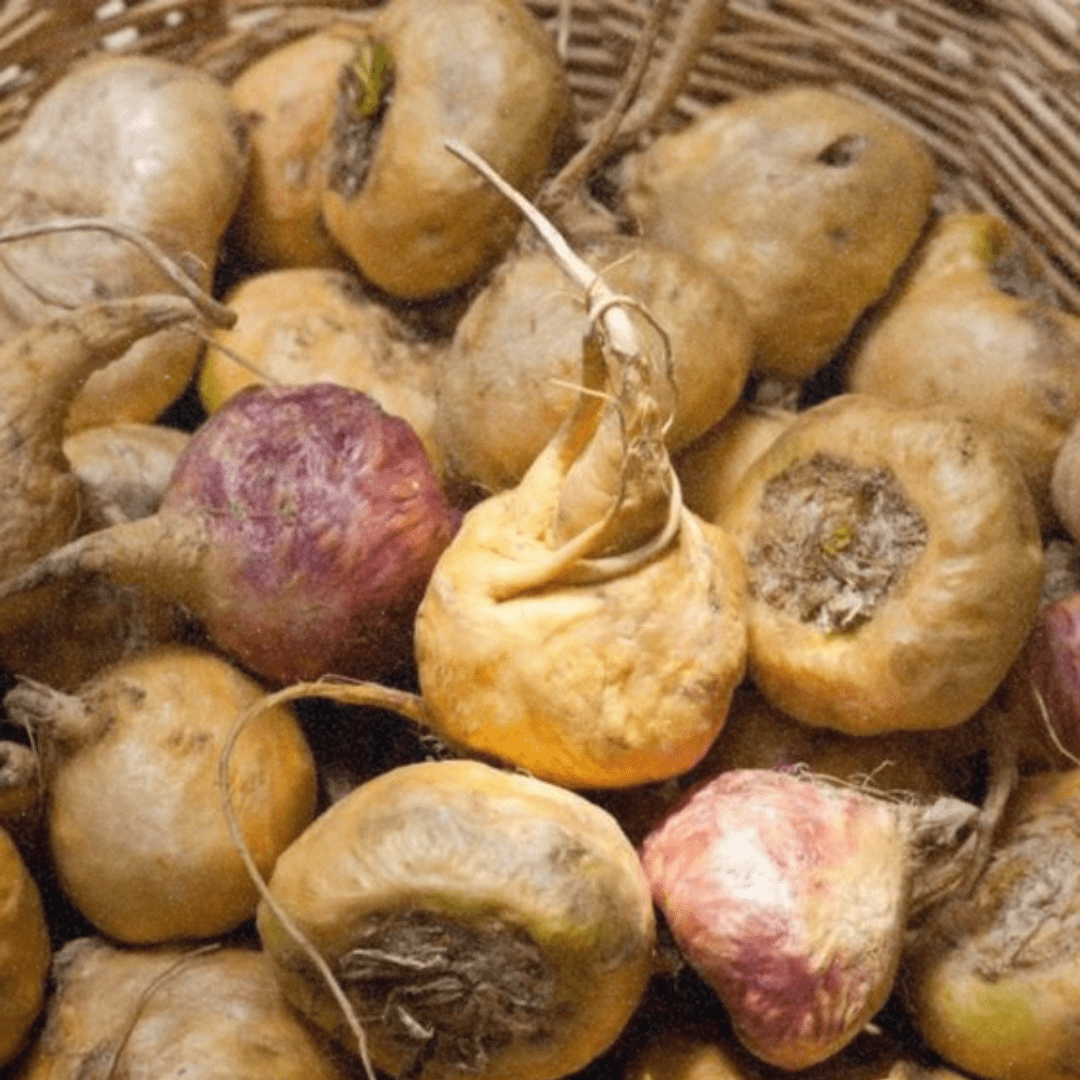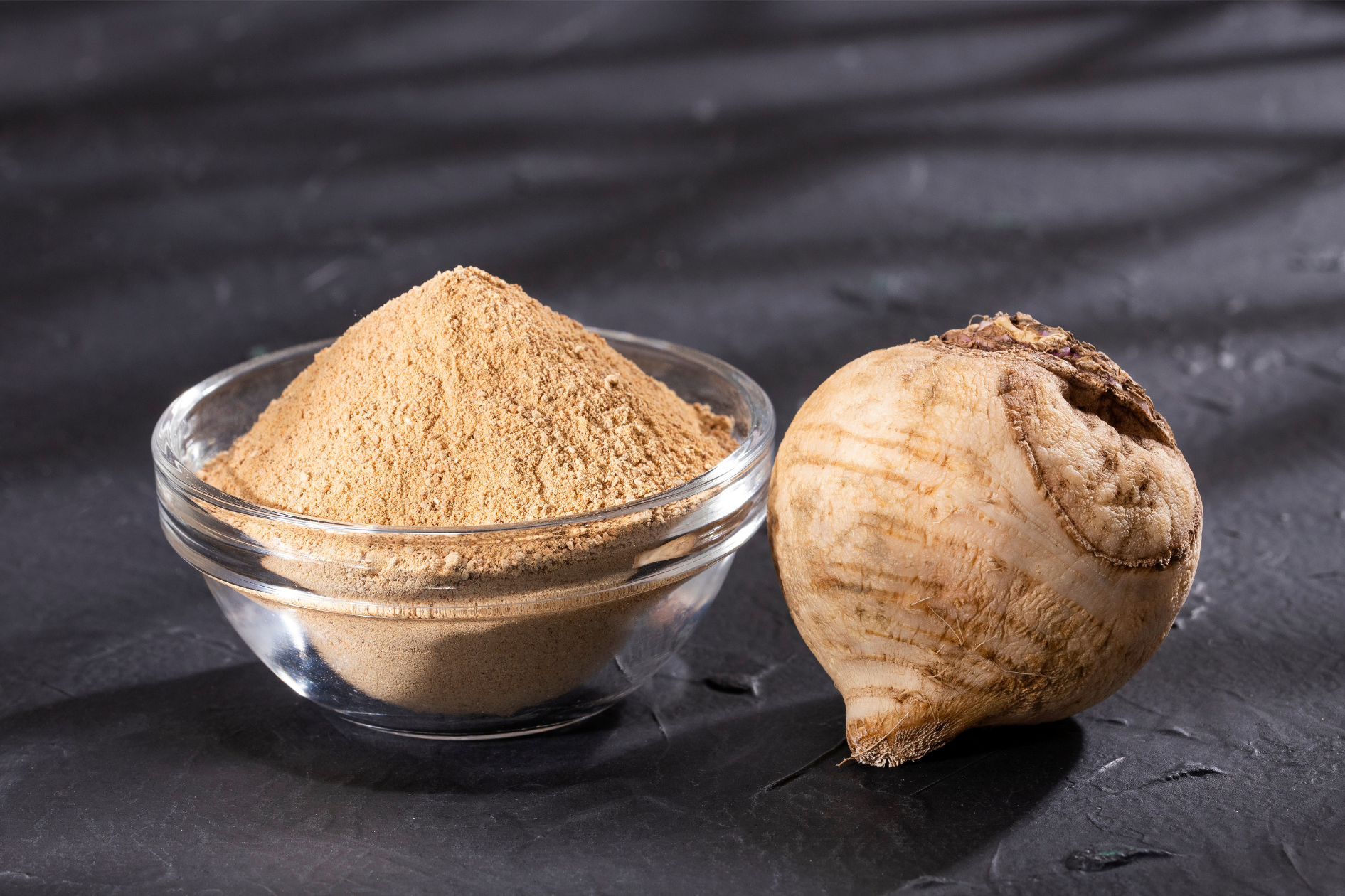Uncovering the Versatile Virtues of Maca Root
In the wellness landscape of the UK, adaptogenic herbs have been steadily rising as beacons of balance and vitality. Ashwagandha, reishi mushroom, and holy basil are now household names, treasured for their ability to navigate the body through the ebbs and flows of stress.
These botanicals are often found in the form of powders, tinctures, or encapsulated extracts, and they've gracefully made their way into the bustling marketplace of food and drink innovations. Among this illustrious group, the maca root is fast becoming a star. It shares the noble aim of stress relief with its adaptogenic counterparts but shines distinctly due to its unique ensemble of benefits.
As interest in maca root swells, it's crucial to sift through the science and seek expert insights on weaving this ancient herb into the fabric of daily health practices. In this blog, we'll unfold the myriad of everyday health benefits that maca root offers, substantiated by research and embraced by wellness enthusiasts.
What is Maca Root?
Maca, with its scientific name Lepidium meyenii, is more than a humble root from the Peruvian Andes. With leaves akin to radishes and turnips, its subterranean hues range from vibrant yellows to deep purples and stark blacks. The storied past of maca weaves through 3,000 years of history, where it was not only a medium of exchange but also a treasured remedy for an array of conditions—menstrual discomfort, menopausal symptoms, and even as a tonic for fatigue and stress. [1]
Esteemed as a superfood, maca's legacy is rooted in the heart of the Andes, cherished for millennia for its restorative qualities. Today, its potency is captured in a fine powder, the result of a careful process of harvesting and grounding the resilient root. This nutritional titan has been lauded for its multitude of health benefits throughout the ages.
In the heyday of the Inca empire, maca was a privilege of the throne, a treasure that later crossed oceans to grace the courts of Spain. There, it was embraced by the nobility as an elixir for vitality and well-being. While modernity favours the convenience of powder and capsules, traditionally, the fresh root was cooked, offering a wholesome experience steeped in tradition and wellness.
Maca's Use In Modern Day
From ancient Peruvian currency to a revered staple in global wellness circles, maca root has transcended its traditional boundaries. In modern times, this once-sacred plant has seamlessly integrated into the daily lives of health-conscious individuals worldwide. As a natural supplement, maca continues to gain acclaim, not just within the holistic health community but also among athletes, professionals, and anyone seeking a natural boost in their day-to-day vitality and wellbeing.
Today, maca is celebrated for its adaptogenic qualities, believed to help the body cope with stress, and is often included in dietary supplements aimed at enhancing energy, stamina, and mental clarity. As we delve deeper into its widespread popularity, it's evident that maca's journey from the peaks of the Andes to the shelves of health food stores around the world signifies a meeting of ancient tradition and contemporary health trends. Below are just a few of the popular ways that maca is used in today’s health concious community:
Mood and Energy
Embracing maca powder may feel like unlocking a hidden reservoir of mental clarity and emotional uplift. Users often speak of a sharpened memory and a sense of elevated spirits, with some even noting a swift change after beginning their maca journey. But it's the sustained zest for life that sets maca apart; unlike the fleeting rush of caffeine that can leave one on edge, maca is celebrated for its harmonious energy boost.
The research world is taking notice, with studies revealing maca's promising influence on vigour and stamina. This surge of vitality is not just about physical energy—it intertwines with a brighter mood, painting a picture of overall well-being. Early findings also hint at maca's ability to soften the shadows of depression, making it a beacon of hope in mood management.
Maca's balancing act extends to blood sugar levels and adrenal support, orchestrating a symphony of mood and energy that resonates from dawn till dusk. This equilibrium might be a key player in weight management, offering a gentle, sustained empowerment throughout your day. [2]
Depression and Stress Management
Intriguing research on maca's impact on mood and stress management has surfaced from the scientific community. A pivotal 2014 study conducted on mice shed light on the connection between maca consumption and mood enhancement. Over six weeks, a notable increase in dopamine levels was observed, correlating with a decrease in depressive symptoms. These findings suggest that maca's adaptogenic qualities might be at play, enhancing an individual's resilience to stress and uplifting their mood. [3]
The world of adaptogens, with maca as a key player, is known for aiding the body in coping with environmental stressors. Rooted in the ancient wisdom of Ayurvedic and traditional Chinese medicine, adaptogens like maca are now gaining momentum in Western health practices. Maca, in particular, is thought to activate the body's stress-protection response and regulate the hypothalamic pituitary adrenal (HPA) axis – a critical component in our hormonal and nervous system's response to stress.
Studies, especially those involving rats, point towards maca's ability to maintain balanced cortisol levels, a common indicator of stress. This cortisol regulation highlights maca's potential in not just managing stress but also stabilising mood. While the promise is there, especially for those grappling with stress, further human-centric research is essential to cement maca's role in mood enhancement and stress management. [4]
Relieve Symptoms of Menopause
Menopause, a natural yet significant transition in the lives of many individuals, often brings with it a host of challenging symptoms like hot flashes and sleep disturbances. Emerging studies have shone a light on maca as a potential ally during this phase. This root, revered for its natural properties, might offer a comforting hand in smoothing out some of the common menopausal discomforts.
The key to maca's effectiveness could lie in its potential to balance hormone levels, thus easing the typical symptoms associated with menopause. Its role in this delicate stage of life positions it as a supportive, natural option for those seeking to manage these changes more comfortably. However, it's essential to approach this transition with care; consulting healthcare professionals before introducing maca, or any new supplement, into your wellness plan during menopause is always advised. [5]
Sexual Benefits
Research has begun to illuminate the role of maca in enhancing male sexual health and fertility, without necessarily elevating testosterone levels. Notably, a Peruvian study revealed that an eight-week regimen of maca supplementation was associated with an increase in sexual desire among men. [6] Additionally, another study observed improvements in sperm quality and mobility, suggesting its potential in male reproductive health. [7]
In the realm of female sexual health, particularly postmenopausal wellbeing, a 2008 study brought to light maca's multifaceted benefits. [8] It pointed to improvements not only in sexual dysfunction but also in psychological symptoms prevalent during menopause, including a notable reduction in depression and anxiety after six weeks of maca intake.
Beyond these specific findings, maca has garnered attention for its ability to harmonise female sex hormones, offering respite from the myriad symptoms of menopause. It's gaining recognition as an effective menopause supplement, thanks to its potential in regulating hormone levels, which can be instrumental in addressing concerns such as infertility, weight fluctuation, and bloating. [5] The hormone-balancing effect of maca emerges as a pivotal factor in various facets of reproductive health, highlighting its importance in both male and female wellness narratives.

Dosage
Incorporating maca into your wellness regimen can be done either by consuming the root itself or through maca extracts, with water or ethyl acetate-based options being recommended. The typical dosage range for maca is generally between 1,500 to 3,000 milligrams. [9] To ensure effective absorption and minimise any digestive discomfort, it's best to take maca alongside food. Beginning with a lower dose and gradually increasing it allows your body to adapt smoothly to the supplement.
Recognising the importance of a balanced dosage, Lucid's "Re-vitalise me" bars are crafted to deliver a perfect dose of 1,500mg of Maca per bar, aligning with the standard legal dosage in the UK for promoting real energy. These bars offer a convenient and delicious way to integrate the benefits of maca into your daily routine, combining optimal dosage with the natural goodness of maca for sustained vitality.
As always, it's essential to consult with a healthcare provider before starting any new supplement regimen, especially for those with existing health conditions or on other medications. Lucid's commitment to well-being ensures that our products not only meet legal standards but also complement your health goals seamlessly.

Wrapping Up the Maca Story
As we conclude, it's clear that maca root is not just any supplement; it's a natural powerhouse. Offering a boost in energy and mood, and aiding in sexual health and fertility, maca is a testament to the power of nature in enhancing our daily lives. Its particular effectiveness in hormone regulation makes it a go-to for managing menopausal symptoms and supporting fertility.
While the benefits of maca are vast, it's always wise to embark on this journey under the guidance of healthcare professionals. This ensures that maca fits perfectly into your personal health narrative. Its rising popularity is a nod to its potential in nurturing well-being, making maca a valued addition to our modern health toolkit.
In essence, maca root is more than just an herb; it's a bridge between ancient tradition and modern wellness, embodying Lucid's ethos of blending natural wisdom with contemporary lifestyles. As maca continues to garner attention and research, we invite you to explore its benefits and integrate this ancient marvel into your wellness journey.
References:
- Axe, J. (n.d.). Maca Root Benefits. Retrieved from https://draxe.com/nutrition/maca-root-benefits/
- Gonzales-Arimborgo, C., Yupanqui, I., Montero, E., Alarcón-Yaquetto, D. E., Zevallos-Concha, A., Caballero, L., ... & Gonzales, G. F. (2022). Acceptability, Safety, and Efficacy of Maca (Lepidium meyenii) Root as an Alternative to Hormone Replacement Therapy in Perimenopausal Women. Frontiers in Nutrition, 9. https://doi.org/10.3389/fnut.2022.1004174
- Stone, M., Ibarra, A., Roller, M., Zangara, A., & Stevenson, E. (2014). A pilot investigation into the effect of maca supplementation on physical activity and sexual desire in sportsmen. Journal of Ethnopharmacology, 126(3), 574-576. https://www.ncbi.nlm.nih.gov/pmc/articles/PMC4025608/
- Ai, Z., Cheng, A. F., Yu, Y. T., Yu, L. J., & Jin, W. (2018). Antianxiety and anti-depressant effects of Maca (Lepidium meyenii) ethanolic extract on chronic unpredictable mild stress of rats through hypothalamic-pituitary-adrenal axis. Siftdesk Journal. https://www.siftdesk.org/article-details/Antianxiety-and-anti-depressant-effects-of-Maca-emL-meyeniiem-ethanolic-extract-on-chronic-unpredictable-mild-stress-of-rats-through-hypothalamic-pituitary-adrenal-axis/466
- Gonzales, G. F., Córdova, A., Vega, K., Chung, A., Villena, A., Góñez, C., & Castillo, S. (2014). Effect of Lepidium meyenii (maca) on sexual desire and its absent relationship with serum testosterone levels in adult healthy men. Andrologia, 34(6), 367-372. https://www.ncbi.nlm.nih.gov/pmc/articles/PMC3614644/
- Gonzales, G. F., Ruiz, A., Gonzales, C., Villegas, L., & Córdova, A. (2002). Effect of Lepidium meyenii (Maca) on sexual desire and its absent relationship with serum testosterone levels in adult healthy men. Andrologia, 34(6), 367-372. https://pubmed.ncbi.nlm.nih.gov/12472620/
- Gonzales, G. F., Nieto, J., Rubio, J., & Gasco, M. (2002). Effect of Black Maca (Lepidium meyenii) on one spermatogenic cycle in rats. Andrologia, 34(5), 367-372. https://pubmed.ncbi.nlm.nih.gov/11753476/
- Brooks, N. A., Wilcox, G., Walker, K. Z., Ashton, J. F., Cox, M. B., & Stojanovska, L. (2008). Beneficial effects of Lepidium meyenii (Maca) on psychological symptoms and measures of sexual dysfunction in postmenopausal women are not related to estrogen or androgen content. Menopause, 15(6), 1157-1162. https://pubmed.ncbi.nlm.nih.gov/18784609/
- Examine.com. (n.d.). Maca Supplement — Health Benefits, Dosage, Side Effects. Retrieved from https://examine.com/supplements/maca/





Reishi Magic: Unveiling the Miraculous Health Virtues of a Timeless Mushroom
Superfood Secrets: How Cordyceps Mushrooms Can Revolutionise Your Health